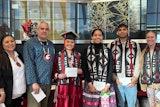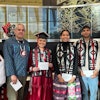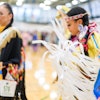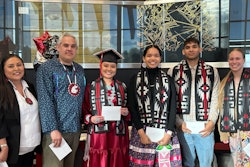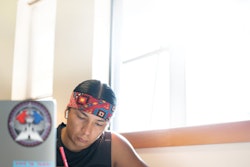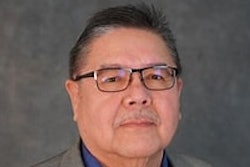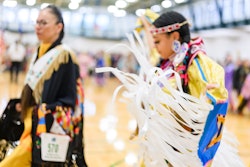WALKER, Minn.
Irene Folstrom traveled a long way from the Indian reservation where she was born — to Stanford University, then on to law school at Cornell.
Tribal members often urged her to bring her talents back home to help tackle drugs, gangs and violence on the impoverished Ojibwe reservation. But Folstrom would just smile and nod — until her uncle was stabbed to death on the Leech Lake reservation and a cousin was killed by a drunken driver.
“When I came home for back-to-back funerals, I knew then that I had to come home” for good, Folstrom said.
Folstrom, 31, abandoned plans to stay with her husband during his medical residency in Arizona and returned to Minnesota, launching a state Senate bid that could make her the first American Indian woman elected to the Legislature.
“Our areas are ignored a lot of the time because we’re poor,” she said. “The state has a lot of power and the Legislature has a lot of power to assist communities that are in need.”
Around the United States, American Indians are increasingly getting elected to state office and taking part in a political process that they once kept at arm’s length.
“Indians were here first — it’s about time,” said former Sen. Ben Nighthorse Campbell, who was the only American Indian in the Senate from 1992 to 2004. “We’re way behind the African-Americans and Hispanic Americans in getting politically involved, but we’re beginning to take a page out of their notebook.”
While Indians are rare in Congress — Rep. Tom Cole, a Chickasaw from Oklahoma, is the only one _ 48 are serving in 12 state legislatures, up from 36 a couple of years ago. Oklahoma has the most, 10, followed by eight in Montana, seven in Alaska and five in New Mexico, according to the National Conference of State Legislatures.
The 2000 Census found 4.1 million people claimed at least some American Indian blood, and 2.5 million claimed to be solely American Indian.
Minnesota — which is home to 11 American Indian bands and where more than 81,000 people, or 1.6 percent of the population, claimed to be at least partly American Indian — has not had an American Indian in the Legislature in the past decade.
In the century and a half since territorial government was organized, Minnesota voters have elected just six American Indian men to the Legislature.
American Indians and others said that is a problem, when nearly every year brings debate on gambling rights, tribal sovereignty, and other issues that directly concern tribes, including health care, education and natural resources.
Leech Lake tribal chairman George Goggleye, who backs Folstrom, blames the dearth of American Indian lawmakers on racism, lack of political experience and money, and the tribes’ relatively small numbers.
Nighthorse Campbell suggested another reason: hostility toward the U.S. political system. He said that when he first ran for office, militant American Indian friends questioned why he would get involved with a government they viewed as the enemy.
But that appears to be changing. INDN’S List, a Tulsa, Oklahoma-based group, was launched in February to work for Democratic Indian candidates — American Indians traditionally have voted heavily Democratic — and get out the Indian vote. The group operated its first camp to groom prospective lawmakers in October.
“We want to be courted for more than our votes and our money; we want to be courted for our voices,” said Kalyn Free, the group’s president and founder.
—Associated Press
© Copyright 2005 by DiverseEducation.com
